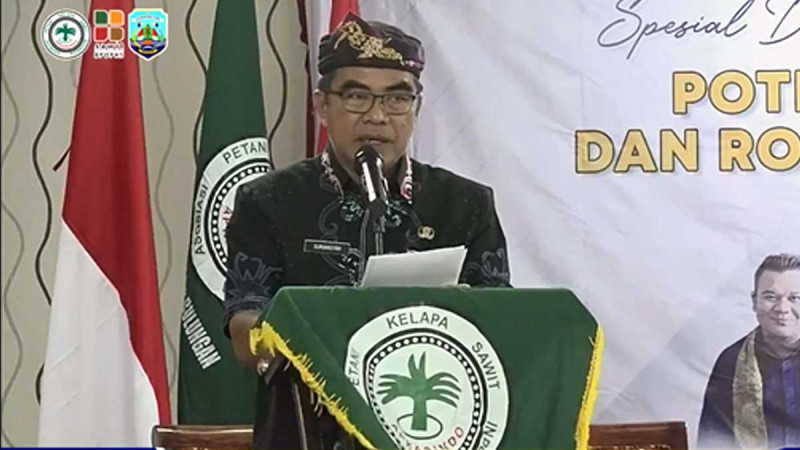
InfoSAWIT, TARAKAN – Palm oil is one mainstay commodity that has massive potential to escalate the economy in many regions and people’s welfare, particularly in North Kalimantan Province.
Referring to the progress of many companies and Sistem Informasi Perizinan Perkebunan (Siperibun) 2023 and also the permanent data and temporariy data in North Kalimantan Province, the big private plantations and smallholders’ plantations got wider. In 2022, big private plantation companies in the province laid about 332.377,46 hectares, escalated to be 497.486,92 hectares in 2023.
The people’s plantations that laid on about 38.938,04 hectares escalated to be 39.466,50 hectares. In a whole, from 2022 to 2023, palm oil plantations got wider about 165.637,92 hectares.
“From the numbers, palm oil fresh fruit bunch (FFB) production in 2023 could be reaching 20.436.015,60 tons that were produced by 51 companies. In Regency of Bulungan there were 20 units; in Regency of Malinau there was 1 unit; in Regency of Nunukan there were 20 units; in Regency of Tana Tidung there were 10 units and from smallholders’ plantations,” Secretary of North Kalimantan Province, Suriansyah said when delivering keynote speech of Governor of North Kalimantan, Zainal A. Paliwang in the “Dialog Spesial Potensi Perkebunan Kelapa Sawit dan Peta Jalan (Roadmap) Perkebunan Kelapa Sawit Kalimantan Utara” in Tarakan, as in the official statement to InfoSAWIT, Thursday (25/4/2024).
He also said that crude palm oil (CPO) production in the same period was high enough that reached 4.162.941,53 tons. The numbers were from the smallholders that reached 75.738,41 tons and big private companies that reached 4.087.203,12 tons.
“Knowing the big potential, North Kalimantan Province now has Rencana Aksi Daerah Kelapa Sawit Berkelanjutan (RAD KSB) or Regional Action Plan Sustainable Palm Oil that was regulated in the Governor’s Regulation of North Kalimantan Number 16 / 2022 about RAD KSB North Kalimantan in 2022 - 2024,” the governor noted, read by Suriansyah.
Still in the dialogue that was in cooperation among, North Kalimantan Province, Palm Oil Plantation Fund Management Agency (PFMA) and Asosiasi Petani Kelapa Sawit Indonesia (Apkasindo), Zainal said that RAD KSB is in revision process to adjust with guidelines from Ministry of Internal Affair. “RAD KSB would be the significant effort to take advantages on palm oil potential to develop North Kalimantan,” the governor noted.
In addition, palm oil positively delivers impacts for the province namely in the revenue. Based on the Government’s Regulation Number 38 / 2023 about Palm Oil Profit Sharing, the government decided its percentage for the province, producer regions and non-producer regions. The province producing palm oil would get its rights 20%, producer regency/city would get 60% and regency/city in borders with producing regency/city would get 20%.
“Of the allocation, based on the Regulation of Minister of Finance Indonesian Republic Number 91 / 2023 about Fund Management of Palm Oil Profit Shairng in 2023, North Kalimantan Province got Rp 56.351.938.000,” the governor said.
Meanwhile, Food Security and Agriculture Agency North Kaliamntan Province, Heri Rudiyono said that palm oil development should have the balance with environment development. The institution would realize its commitment by revising RAD KSB in the province. “It means, it is good to get profits but should notice environment development to remain good,” Heri said.
Coordinator of Apkasindo, Suhendrik said that for all these years, the smallholders in the province still face many issues, namely fund access to conduct smallholders replanting program. It is needed to escalate their plantation productivity.
He thought, many smallholders’ plantations are not productive and need the program. That is why it would spend much. “We always get coordination with Apkasindo in central level and the central government, in this case, Ministry of Agriculture through General Directorate of Plantation and PFMA. We would solve the issue, such as, by having the dialogue like this,” he said. (T2)












